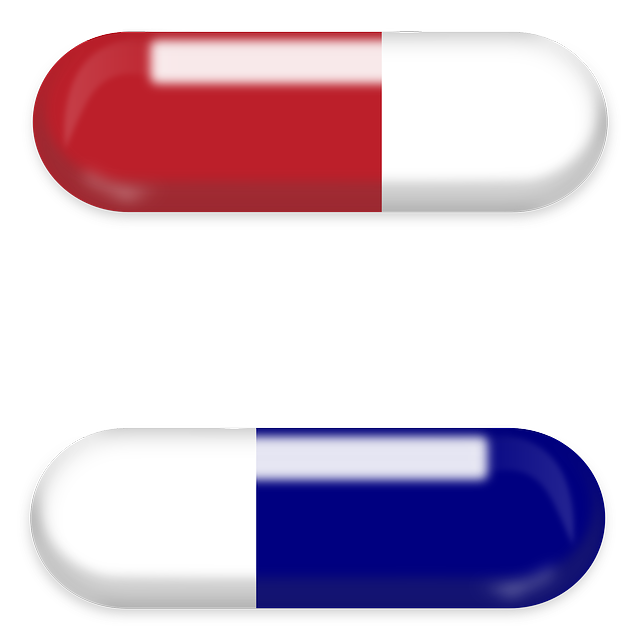Semaglutide, a synthetic GLP-1 analog, revolutionizes diabetes management by stimulating insulin and suppressing glucagon. Compounded pharmacies offer personalized compounded semaglutide options, including specific concentrations and delivery methods, ensuring optimal dosing and minimal side effects. This tailored approach addresses individual patient needs, enhancing treatment efficacy and improving outcomes. By combining semaglutide with other agents, healthcare professionals create precise formulations, managing comorbidities and boosting patient satisfaction. Navigating regulatory guidelines, like FDA rules, is crucial for safe administration. The future of diabetes care looks promising with ongoing research into compounded semaglutide options, aiming to provide sustainable and effective personalized treatments.
In the pursuit of personalized healthcare, semaglutide compounding emerges as a game-changer in treatment strategies. This article explores the advantages of tailored semaglutide formulations, highlighting their pivotal role in enhancing therapeutic outcomes. We delve into the significance of personalized treatment approaches, especially in managing complex conditions. Understanding semaglutide’s mechanism and its potential through compounding opens doors to improved efficacy, patient adherence, and quality of life. Discover how these customized options navigate regulatory landscapes and shape the future of healthcare.
Understanding Semaglutide and Its Role in Treatment

Semaglutide, a synthetic analog of the intestinal hormone GLP-1, has emerged as a powerful tool in diabetes management. Its role in treatment personalization is significant, especially when combined with compounding pharmacy services to create tailored therapeutic solutions. This peptide hormone stimulates insulin secretion and suppresses glucagon release, leading to improved glycemic control. The use of compounded semaglutide options allows healthcare professionals to offer personalized dosages and delivery methods, catering to individual patient needs.
By leveraging compounding pharmacies, healthcare providers can access a range of compounded semaglutide preparations, including specific concentrations and administration forms such as injections or infused solutions. This level of customization ensures optimal dosing while minimizing side effects, making it an effective strategy for enhancing treatment outcomes in diabetes patients.
The Need for Personalized Treatment Approaches

In today’s medical landscape, one-size-fits-all treatment approaches are becoming increasingly inadequate in addressing the diverse needs of patients. The complexity and variability of healthcare conditions demand more tailored solutions. Compounded semaglutide options emerge as a promising tool to achieve this personalized medicine goal. By allowing healthcare professionals to create customized formulations of semaglutide, these compounded options can target specific patient requirements, enhancing treatment efficacy and patient outcomes.
This shift towards personalization is not merely a trend but a necessity driven by the recognition that every patient’s body reacts uniquely to medications. Traditional dosing methods often fail to account for individual variations in metabolism, tolerance, and disease progression. Compounded semaglutide formulations offer a way to bridge this gap, ensuring that treatment aligns more closely with an individual’s physiological needs.
What is Semaglutide Compounding?

Semaglutide compounding refers to the customization and preparation of this medication for individual patient needs. In many cases, semaglutide, a type of injectable medicine used in diabetes management, is prescribed at specific doses tailored to each patient’s unique circumstances. This process involves mixing or compounding various forms of semaglutide (including different strengths or formulations) to create the precise dose required. Compounded semaglutide options offer a level of flexibility that allows healthcare professionals to address individual treatment goals more effectively.
This personalized approach is particularly valuable for patients who may struggle with standard dosage forms or have specific medical conditions necessitating unique dosing regimens. By compounding semaglutide, pharmacists and healthcare providers can create customized solutions, ensuring optimal treatment outcomes while considering each patient’s distinct needs and preferences.
Advantages of Customizing Semaglutide Dosage

Customizing the dosage of semaglutide, a versatile medication, offers significant advantages in treatment personalization. This is especially beneficial for patients with unique physiological needs or those experiencing varying levels of response to therapy. The ability to tailor the dosage allows healthcare professionals to optimize the medication’s efficacy while minimizing potential side effects. With compounded semaglutide options, doctors can prescribe precise doses that align with individual patient requirements, ensuring a more effective and personalized treatment journey.
By adjusting the dosage, healthcare providers can address specific challenges, such as managing weight-related conditions or diabetes, with greater precision. This individualized approach takes into account factors like body mass index (BMI), metabolic health, and personal tolerance, leading to improved patient outcomes and satisfaction. Moreover, it encourages better medication adherence, as patients are more likely to stick to a treatment plan that feels manageable and effective.
Enhanced Efficacy through Compound Formulations

Semaglutide, a glucagon-like peptide-1 (GLP-1) receptor agonist, has shown remarkable effectiveness in managing diabetes and weight management. One of the key advantages of semaglutide treatment is the availability of compounded semaglutide options. By combining semaglutide with other therapeutic agents, healthcare professionals can create customized formulations tailored to individual patient needs. This approach enhances efficacy as it allows for a more precise adjustment of dosage and delivery methods, ensuring optimal results.
These compounded semaglutide options offer a range of benefits. They enable the management of specific comorbidities, improve patient compliance by reducing injection frequency, and enhance overall treatment satisfaction. The flexibility in formulation design means that patients with varying preferences and requirements can benefit from semaglutide therapy, making it a versatile tool in personalized medicine.
Improved Patient Adherence and Quality of Life

Semaglutide compounding offers significant advantages in treatment personalization, one of the most notable benefits being improved patient adherence and quality of life. By providing tailored compounded semaglutide options, healthcare professionals can address individual patient needs more effectively. Customized dosages and formulations cater to specific requirements, enhancing patient satisfaction and engagement in their care plans. This personalized approach not only encourages better medication adherence but also leads to substantial improvements in patients’ overall well-being.
Tailored semaglutide treatments allow for optimal blood glucose control while minimizing side effects, making the treatment experience more positive for patients. As a result, individuals living with diabetes can achieve better health outcomes and an enhanced quality of life. This shift towards personalized medicine ensures that patients receive optimized care, ultimately fostering their adherence to long-term treatment plans.
Navigating Regulatory Considerations for Compounded Semaglutide

Navigating Regulatory Considerations for Compounded Semaglutide involves understanding complex guidelines to ensure safety and efficacy. Healthcare professionals must adhere to stringent rules set by regulatory bodies like the FDA, which govern the preparation and administration of compounded medications. These regulations are designed to protect patients from potential risks associated with tailored treatments.
Compounded semaglutide options require meticulous documentation and quality control measures throughout the compounding process. This includes proper labeling, sterility protocols, and adherence to specific formulation instructions. By adhering to these stringent standards, healthcare providers can offer personalized treatments while maintaining regulatory compliance, ultimately enhancing patient safety and outcomes.
Future Prospects and Ongoing Research

The future of diabetes management looks promising with ongoing research focusing on expanding the therapeutic potential of semaglutide compounding. As technology advances, there is a growing interest in developing more personalized treatment options, and compounded semaglutide solutions are at the forefront of this movement. This involves tailoring the medication to an individual’s unique needs, offering a wide range of compounded semaglutide options that can optimize blood sugar control while minimizing side effects.
Researchers are exploring innovative delivery methods, including novel formulations and administration routes, to enhance patient convenience and adherence. Additionally, ongoing studies aim to uncover the long-term benefits and safety profiles of different semaglutide regimens, ensuring that these compounded options remain a sustainable and effective part of diabetes care in the future.
